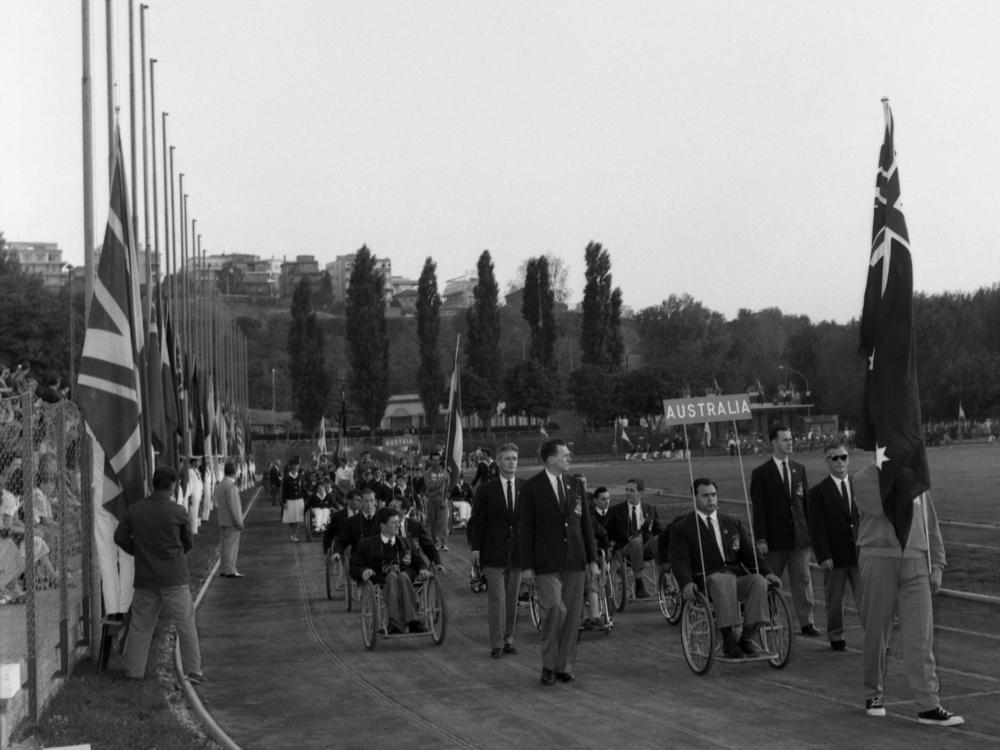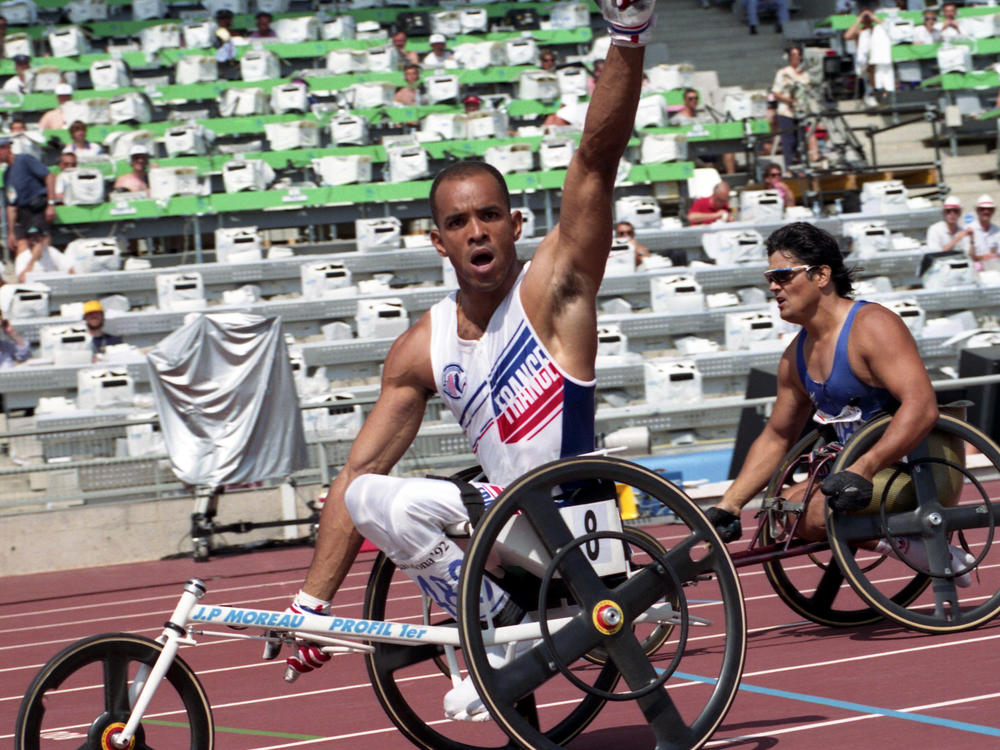Section Branding
Header Content
When Did The Paralympics Start? Here's A Brief History Of The Games
Primary Content
Sports for athletes with an impairment have existed for more than a century, the International Paralympic Committee points out.
But it wasn't until after World War II that the official Paralympics began to take shape, out of an effort to help the many veterans and civilians who were injured during that time.
German-British neurologist Dr. Ludwig Guttmann (who actually escaped from the Nazis) opened a spinal injuries center at the Stoke Mandeville Hospital in 1944 at the request of the British government.
At that time in the U.K., "you were left in hospital to die because the assumption was that you wouldn't have anything to contribute back to society so you might as well be allowed to slip away," Baroness Tanni Grey Thompson, one of Britain's most successful Paralympians, told NPR in 2012. Guttmann challenged that notion, she explained.
The activities there grew in both scope and intensity. As the IPC put it, "in time, rehabilitation sport evolved to recreational sport and then to competitive sport."
Four years later, as the 1948 Olympic Games kicked off in London, Guttmann organized an archery competition for wheelchair athletes. The Stoke Mandeville Games went international four years later when Dutch ex-servicemen joined in. They became the Paralympic Games in Rome in 1960, and have been held every four years ever since.
The Paralympic and Olympic games have taken place in the same host cities and venue since the Summer Games of 1988 and the Winter Games of 1992, thanks to an agreement between the IPC and the International Olympic Committee.
It's also quite literally in the event's name. The word "Paralympic" comes from the Greek preposition "para" (beside) and the word "Olympic," meaning that the two games exist side-by-side.
This story originally appeared on the Morning Edition live blog.
Copyright 2021 NPR. To see more, visit https://www.npr.org.


